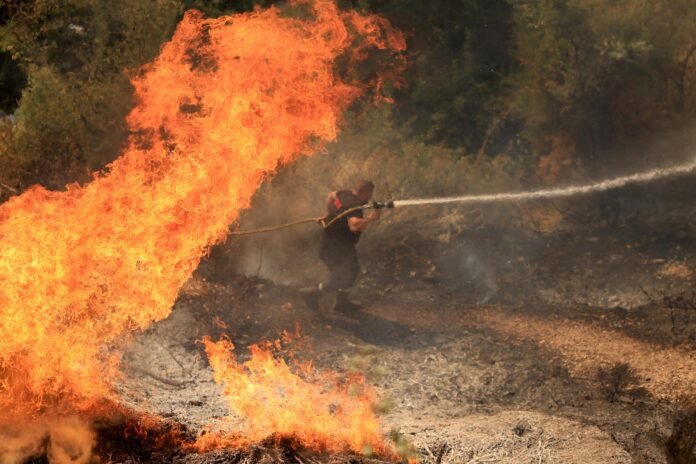The UAE firefighting mission is intensifying operations in Albania, where wildfires have spread since early August. These efforts highlight the country’s commitment to humanitarian aid and rapid disaster response.
General coordination with Albanian authorities has strengthened as the UAE team continues its work on the ground. Their operations follow directives from His Highness Sheikh Mohamed bin Zayed Al Nahyan. By deploying advanced equipment, the team aims to contain flames and prevent flare-ups.
The UAE firefighting mission began on 11 August with the arrival of specialized aircraft and crews. Since then, dozens of aerial sorties have dropped thousands of kilograms of water over critical zones. These actions have significantly slowed fire expansion across affected areas.
Extreme heatwaves, drought conditions, and strong winds fueled the blazes that first ignited on 5 August. Consequently, Albanian communities faced major risks as flames spread through several regions. The joint Emirati-Albanian response now focuses on protecting lives, infrastructure, and farmland.
The UAE firefighting mission has grown stronger with field operations and live coordination. Team members rotate shifts to maintain continuous efforts. Equipment deployed includes water-bombing aircraft, support vehicles, and advanced monitoring systems. This strategy ensures efficiency and speed in responding to shifting fire patterns.
Albanian officials expressed gratitude for the UAE’s swift intervention. They noted that Emirati support helped stabilize several fire zones within days. International observers also highlighted how the operation reflects the UAE’s global humanitarian role.
Local residents welcomed the assistance, praising the Emirati team’s courage. Many said the combined efforts restored hope in communities threatened by evacuation. Meanwhile, UAE representatives emphasized that the mission reflects a deeply rooted policy of solidarity and cooperation.
In conclusion, the UAE firefighting mission demonstrates the importance of shared responsibility in disaster relief. By combining advanced resources and international coordination, both nations are working to control the crisis and protect affected communities.


